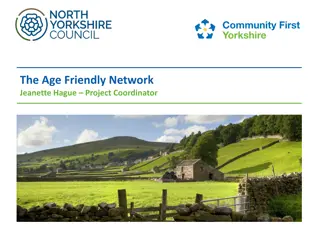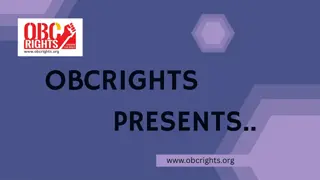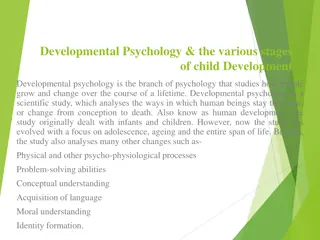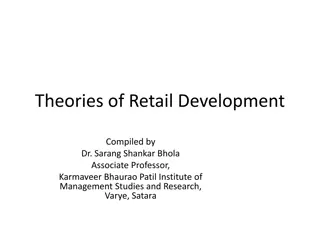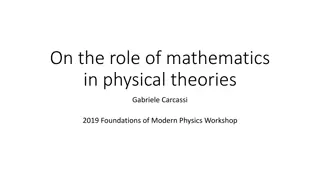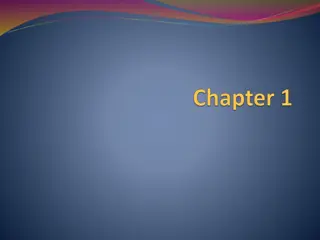Understanding Physical Changes in Old Age and Relevant Theories
Late adulthood, typically starting around age 65, is a period where individuals confront the psychosocial task of integrity versus despair. Geropsychology plays a vital role in studying aging and providing clinical support. Erikson's ninth stage of psychosocial development suggests that older adults revisit earlier stages to cope with the challenges of aging. Physical changes in old age involve cellular aging, decline in organ function, changes in bones, joints, muscles, body fat, vision, hearing, and oral health.
Download Presentation

Please find below an Image/Link to download the presentation.
The content on the website is provided AS IS for your information and personal use only. It may not be sold, licensed, or shared on other websites without obtaining consent from the author. Download presentation by click this link. If you encounter any issues during the download, it is possible that the publisher has removed the file from their server.
E N D
Presentation Transcript
OLD AGE PHYSICAL CHANGES & THEORIES
Late adulthood (old age) is generally considered to begin at about age 65. Erik Erikson suggests that at this time it is important to find meaning and satisfaction in life rather than to become bitter and disillusioned, that is, to resolve the conflict of integrity vs. despair. Geropsychology devoted to the study of aging and the provision of clinical services for older adults. is a field within psychology
Psychosocial Development during Late Adulthood 1) Developmental Task of Late Adulthood: Integrity vs. Despair Like all psychosocial tasks, this one has two potential resolutions: Integrity, or a sense of self-acceptance, contentment with life and imminent death versus Despair, or a lack of fulfillment or peace and the inability to come to terms with life, aging, and approaching death.
Eriksons Ninth Stage of Psychosocial Development After Erik Erikson passed away in 1994, Joan published a chapter on development, in which she proposed (from her own experiences and Erikson s notes) the ninth stage of that older adults revisit the previous eight stages and deal with the previous conflicts in new ways, as they cope with the physical and social changes of growing old.
Changes in the Body With Aging Aging cells As cells age, they function less well. Eventually, old cells must die, which is a normal part of the body s functioning. Old cells sometimes die because they are programmed to do so. Old cells also die because they can divide only a limited number of times.
Aging organs How well organs function depends on how well the cells within them function. Older cells function less well. Also, in some organs, cells die and are not replaced, so the number of cells decreases. The number of cells in the testes, ovaries, liver, and kidneys decreases markedly as the body ages. When the number of cells becomes too low, an organ cannot function normally.
-Bones and Joints -Muscles and Body Fat -Eyes(Vision) -Ears -Mouth and Nose
-Skin -Brain and Nervous System -Heart and Blood Vessels -Lungs and the Muscles of Breathing -Digestive system Kidneys and Urinary Tract
Ageing Theories Ageing may be seen as a sequence of events that occur from conception to death. Categories of ageing theories all seek to explain and explore the many dimensions of ageing. Each theory of aging attempts to provide a framework in which to understand perspectives. aging from different It is useful because a framework and insight into differences among elderly patients can be understood in a better way .
The theories of aging are classified into - I. Biologic theories II. Psychosocial theories III. Developmental theories
1.Biological Theories Programmed theory/ Biological clock theory Run out of program theory Gene theory Molecular theory Cellular theories Error theory Somatic mutation theory Free radical theory Clinker theory wear and tear theory
2. Psychosocial theory: Psychosocial theories of aging attempt to explain changes in behavior, roles and relationship that occur as individual age. This attempt to predict and explain the social interactions and roles that contribute to successful adjustment to old age in older adults. The disengagement theory The activity theory The continuity theory The subculture theory
3. Developmental Theory: Developmental theories or life-course theories. These adjustment throughout a person s life. theories trace personality and personal Many of these theories are specific in identifying life- oriented tasks for the aging person.
Eriksons Theory Havighurst s Theory Newman s Theory Peck s Theory Jung s theory



